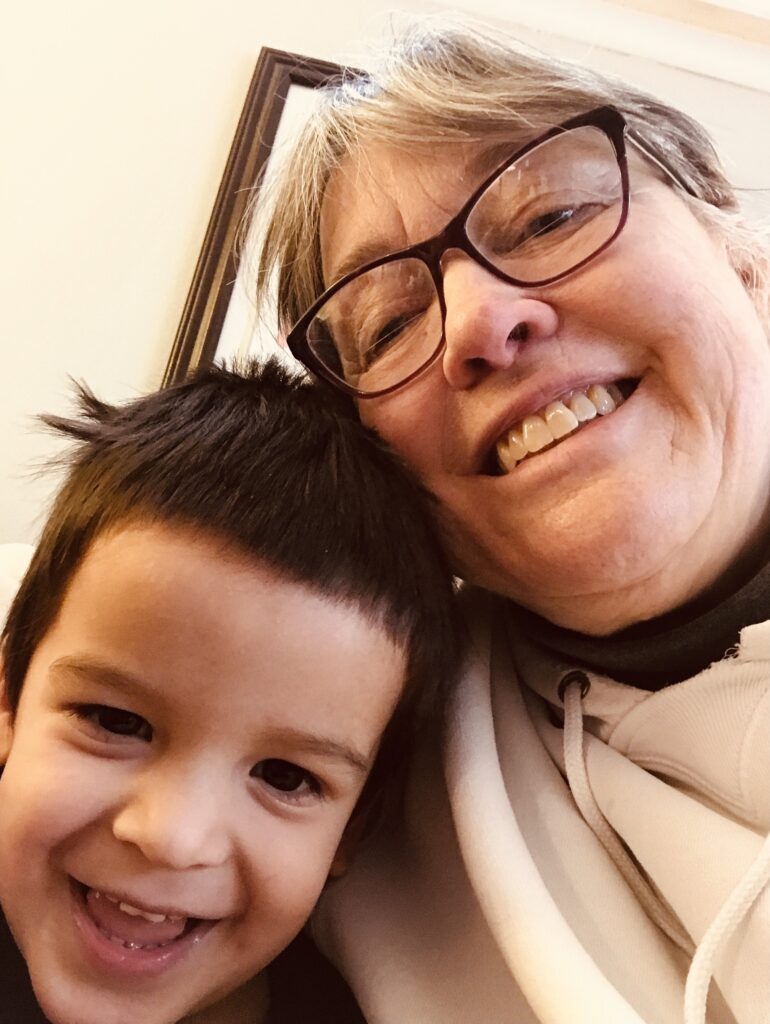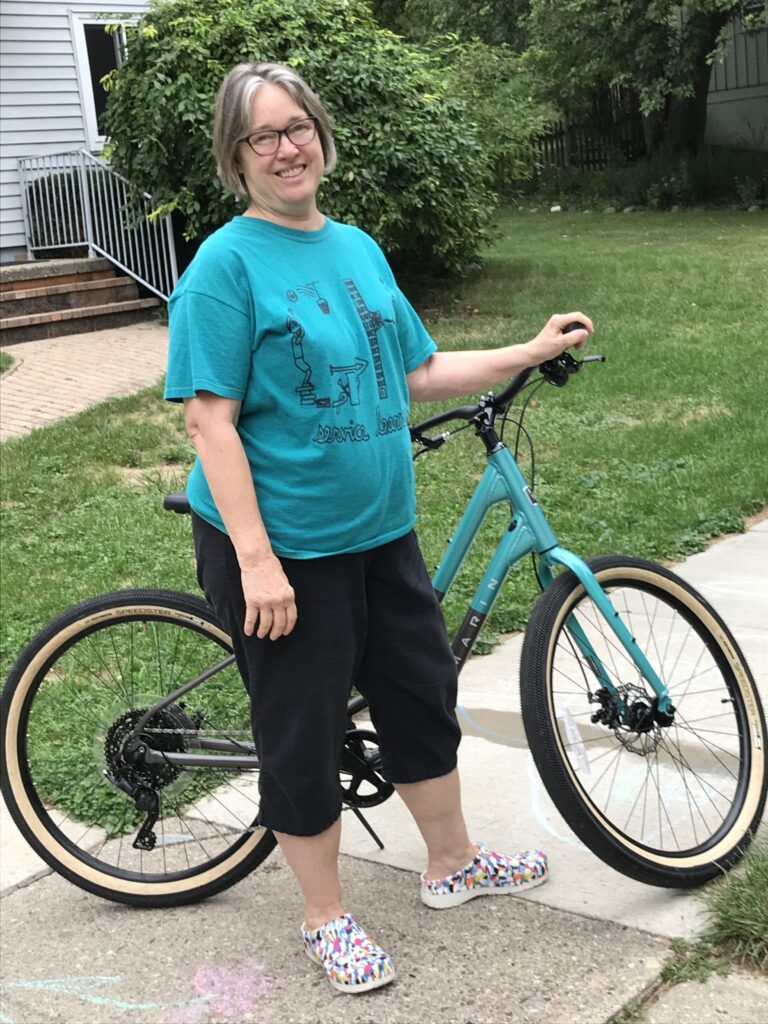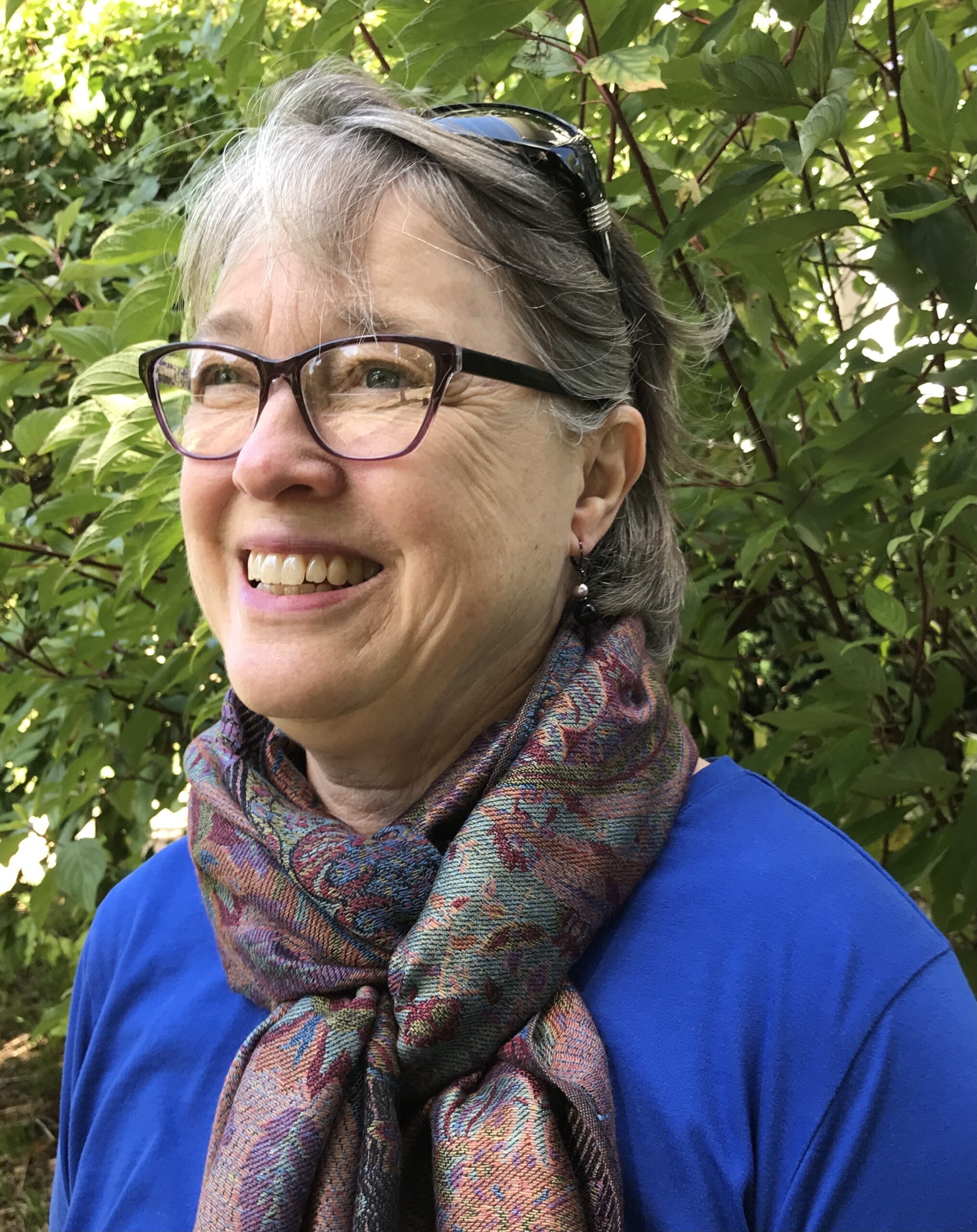We’re so grateful to have you as our Mentor Spotlight of the Month! Can you tell us a little bit about yourself?
“Thank you, McKenna, and EDF, for all that you offer and for inviting me to share some of my story.
 I live in Ann Arbor, MI with my husband, Patrick. By the grace of God, we have a good enough relationship, three adult children and even some grandchildren who live nearby. Dance, music and art are important modes of expression for me. In fact, my first solo painting exhibition just opened! Quite exciting.”
I live in Ann Arbor, MI with my husband, Patrick. By the grace of God, we have a good enough relationship, three adult children and even some grandchildren who live nearby. Dance, music and art are important modes of expression for me. In fact, my first solo painting exhibition just opened! Quite exciting.”
How long have you been a mentor at EDF?
“I’ve had the privilege of mentoring five people over the past two years.“
What is your favorite part of mentoring?
“Listening very carefully to another’s story. Then discovering that I can reach deep into the well of [recovery from the eating disorder I’ve struggled with] and with care and discernment, I can draw out life-giving water and hard-won wisdom to share with another person.”
What is one thing you wish people knew about the important mentor/mentee relationship in eating disorder recovery?
“A mentor is potentially one more person on your recovery team. I think we need them all! Mentors are volunteering their time and attention just for you! If you let them into your story, you can both be strengthened in this 10-week time.
I certainly appreciate each person who has listened to bits of my story as I’ve explored who I am through the recovery process. The therapists, doctors, friends, acquaintances along the way have each contributed their part with listening and holding compassionate space for me, helping me learn to navigate life with more courage and surety. I am deeply grateful.”
What would you tell someone who was thinking about becoming a mentor or mentee?
“Be kind. Be patient. With yourself and with the other. You two don’t know each other. You both bring “baggage” to this relationship. Give each other space as you seek to find common ground on which you can anchor a temporary bridge so you can establish two-way communication.”

What is the best recovery advice you feel like you’ve ever received?
“‘Good enough is good enough.’ What a revelation!
Recovery is possible. You “gotta really want it” and be willing to do the deep, hard work required to sustain one tiny change at a time.”
